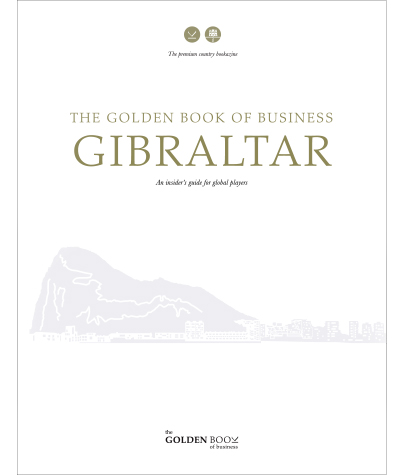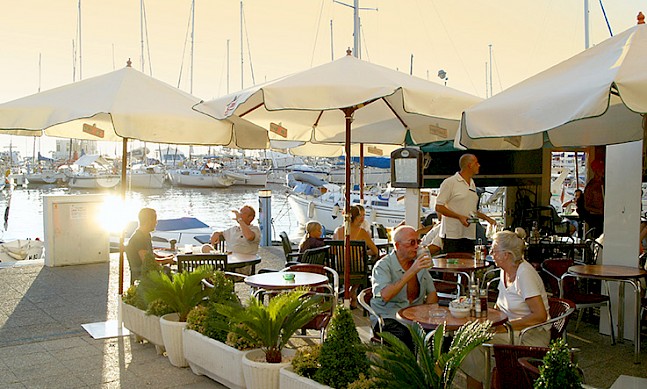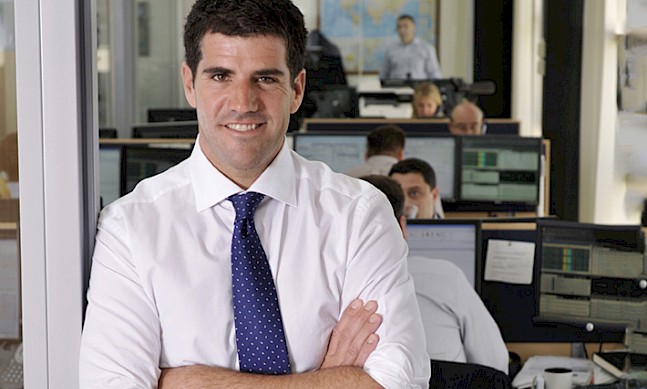Hassans was founded in 1939 and is the largest law firm in Gibraltar. It was the first firm in Gibraltar to structure itself as a modern international law firm, with separate departments for different fields of specialisation. Michael Castiel, one of the firm’s partners, spoke to The Report Company about the history of Hassans and the role it plays in the development of Gibraltar’s economy and reputation.
“Reputation has always been important for us as a firm, and for Gibraltar, because we feel that long-term business can only come if you have a good, solid reputation”Tweet This
The Report Company: How did Hassans become the largest legal firm in Gibraltar?
Michael Castiel: The firm was founded originally in 1939 by Sir Joshua Hassan in those early years of Gibraltar’s transition from being a garrison town to a place whose people wanted rights. This was a population that developed over the last couple of hundred years, from people from the UK, Spain, Malta, Morocco, and Italy, and it needed to negotiate with the UK to advance its civil rights as a people.
Sir Joshua Hassan in those years, he went to study in the UK and came back to Gibraltar in the 1930s, and he was instrumental in moving forward that advance of the civil rights. Eventually, he and a group of people like him managed to get the British government to arrange a Gibraltar parliament, which in those days was called a house of assembly. He then ran for office for the local assembly, and he became the chief minister for Gibraltar, a position he held for around 40 years. He made an incredible mark on the political scene of Gibraltar.
The firm at that time was basically a one-man band with Sir Joshua and his secretary, and it carried on that way for the first 15 to 20 years. As Gibraltar started to develop in the 1960s and 1970s, Sir Joshua and James Levy together turned it into a very commercial outfit, looking very much towards what was happening in big law firms outside Gibraltar. They modelled the firm along the lines of the top firms in London, and that has been our philosophy ever since.
TRC: How much of your business comes from overseas?
MC: Historically, certainly over the last 20 years, I would say that 75 to 85 percent of our work is international.
If you look at the gaming industry, which is a very big sector in the economy of Gibraltar, we were the law firm that actually brought it to Gibraltar. We have partners in places like Israel, that had a lot of these clients, and they were looking for jurisdictions to base their businesses. I went with James Levy to Israel a couple of times, and through the contacts he had there, we managed to get a lot of these clients to come over here and start establishing their operations.
TRC: How important is reputation to the firm and to Gibraltar as a jurisdiction?
MC: Reputation has always been important for us as a firm, and for Gibraltar, because we feel that long-term business can only come if you have a good, solid reputation. To be able to bring in some of the key players in online gaming, Gibraltar had to be a reputable jurisdiction. What Gibraltar has done in the last 15 years or so is to look at quality operators and license them. It has chosen reputable operators who would enhance Gibraltar’s image and reputation.
TRC: What has been your area of focus?
MC: My area of practice, which I developed over the last 15 years, was the corporate structuring using Gibraltar for corporate work. I started to work with partners in other EU jurisdictions, on the back of Gibraltar’s presence in the EU, and the fact that we still have certain tax advantages and benefits, which differentiates us from centres like Jersey and Guernsey and the Isle of Man. That hadn’t been identified before, and we identified that. Suddenly, we felt that this could work, especially for financial services.
Obviously, there was the EU angle of being able to passport financial services from Gibraltar to other EU jurisdictions, but also there was the area of big corporate companies with corporate structures that needed to have holding companies and financing companies in certain jurisdictions. We ended up working with and assisting companies like Amazon. We were at the forefront of the development of a lot of corporate structuring for these big companies.
TRC: What is the advantage of Gibraltar over other jurisdictions for this type of business?
MC: I think that one of the advantages of Gibraltar is that everyone, the authorities, the working environment, and the regulators, is focused in the same direction. We know that it’s a small jurisdiction and that we are competing against some big players, and we have the issue with Spain, but we all work this together, and that is very much the thinking, it’s Gibraltar PLC.
The fact is that if we have an idea, it is not too difficult to take it to the authorities, the government, and the regulator. We have access to these people and we have their ear. They will listen to us, and the gaming industry is a case in point. As the legislation has developed over the years, we have been instrumental in bringing awareness to the government of how to make that environment more acceptable to the gaming operators.
“We still have some advantages, because we are a small, nimble and agile jurisdiction, but I think the offshore concept is almost now historical”Tweet This
TRC: How would you appraise Gibraltar’s shift from offshore to onshore centre?
MC: Gibraltar was offshore in the sense that our tax regime made us an offshore centre. And the fact of the matter is that the EU has almost forced us to become a mainstream jurisdiction. We are no longer offshore. We may have slightly better tax provisions in the law, but the EU is now trying to harmonise the way that taxation is administered in all the jurisdictions. Of course we still have some advantages, because we are a small, nimble and agile jurisdiction, but I think the offshore concept is almost now historical.
Even places like Jersey and Guernsey are coming under the same pressure. I think we will all be part of this group within the EEA area where everybody plays to the same rules, and it’s a level playing field for everybody. This is not a bad thing, and from a Gibraltar perspective, provided that everyone is playing to the same rules, we will do well in the future.
TRC: In which economic sectors do you see growth for Gibraltar?
MC: There is certainly more to be done on the e-gaming side and in e-commerce generally. A lot of the online gaming companies came here mostly for the tax advantages and the fact that it was quite a benevolent regime in terms of the gaming duty. People thought that if these operators were to get a better tax regime elsewhere, they would move elsewhere, but this has not happened. The reason for that is that as these companies came and established themselves here, and found the jurisdiction very friendly and very advantageous to their businesses, more operators came. There was almost a critical mass in the industry with 15 or 20 big gaming operators operating from here. Then what happened was on the telecoms side, all the infrastructure that was required for online gaming started to build up. Now you had top-notch technical infrastructure available in Gibraltar, all the operators, all the payment processing people, and the data centres. What we have now is a whole environment that supports online gaming, and I don’t think you will find that in many places in the world. Even if the tax system changes or there is a more competitive system in another jurisdiction in a few years’ time, I doubt very much that the gaming operators would leave. The industry has become consolidated here. The gaming industry is in Gibraltar to stay, and will obviously grow as more operators come through.
There is also a lot of potential in funds. The government is doing a lot of work in going out and selling the ideas and the jurisdiction, and eventually there will be a breakthrough.
I don’t see massive growth in the shipping industry in Gibraltar, but this has historically been a good area of business for Gibraltar and that will be sustained over time. Gibraltar is also a major centre of ship arrests because of the favourable legal system.
TRC: How is Hassans working to get the word out about Gibraltar?
MC: There are different ways in which we do that. We have a lot of connections with different law firms in different parts of Europe and the US. We advise private equity operators and their law firms, and by dealing with these big global operators, you’re actually getting the word out. People know that you’re on the map.
We attend conferences and we support government initiatives when they do their trips to places like Hong Kong and Bermuda. Ultimately what we want is to try and maximise our exposure as a firm. I have developed a couple of initiatives that I’ve gone out there and sold and brought back a lot of positive feedback and business, which eventually trickles back to the other firms. James Levy has gone out there historically and come up with really creative ideas, and that has created a lot of positive feedback and business coming in.
What a lot of our competitors say is that they don’t need to market Gibraltar, because we do that for them. We market, we get the clients, and then half the time Hassans can’t do the work because we’re conflicted, so then our competitors do it. When you do all this work and you have a lot of creative people trying to develop the jurisdiction, a lot of people benefit. We’re fine with that, because at the end of the day we want to develop the jurisdiction because that creates a positive environment for us.
“A lot of our competitors say that they don’t need to market Gibraltar, because we do that for them”Tweet This










